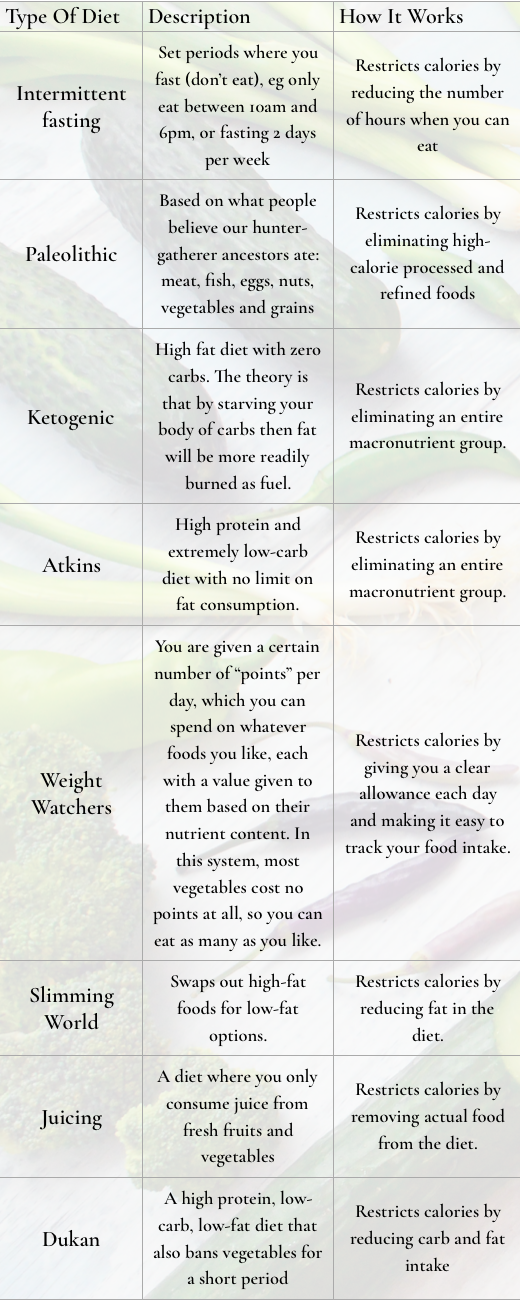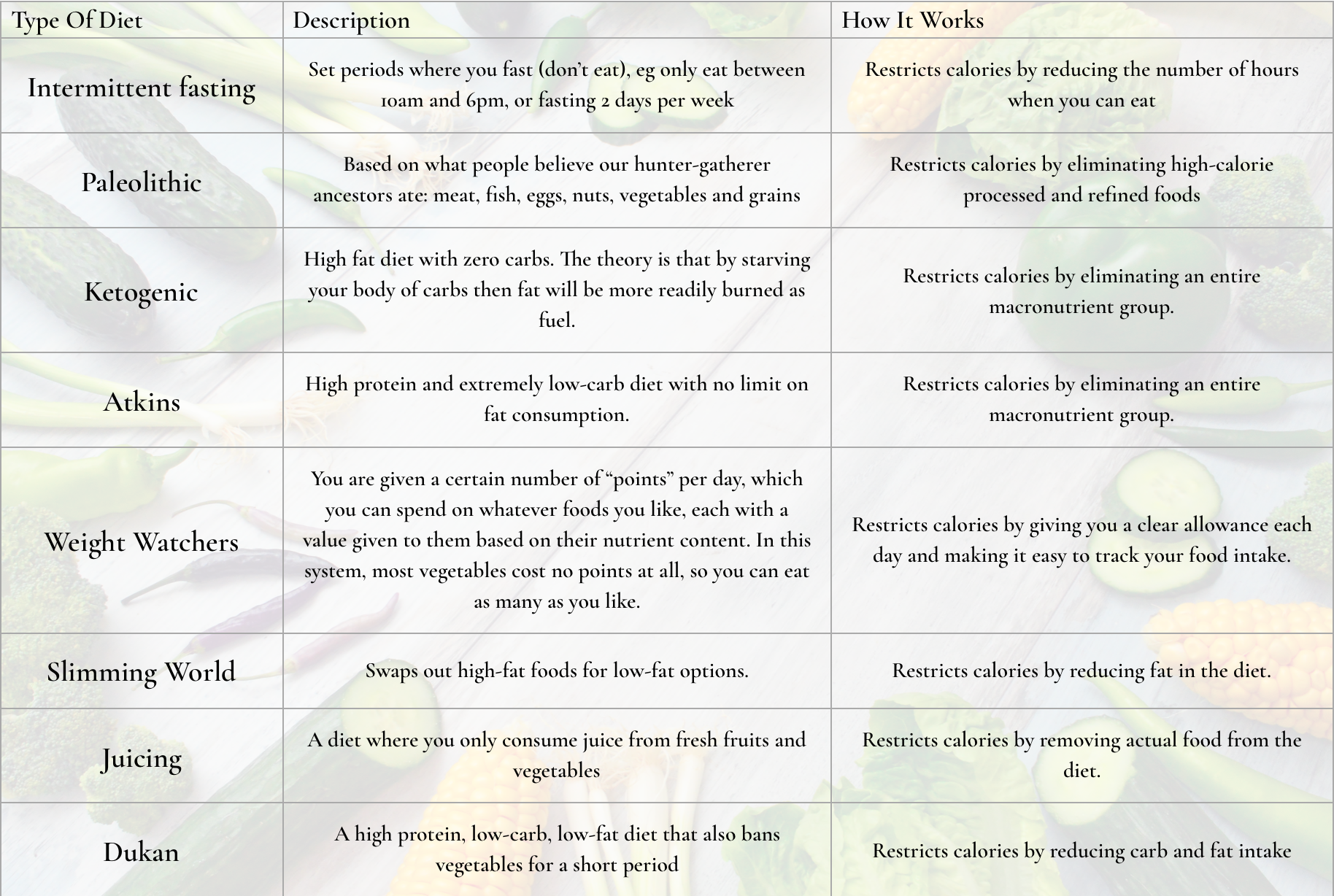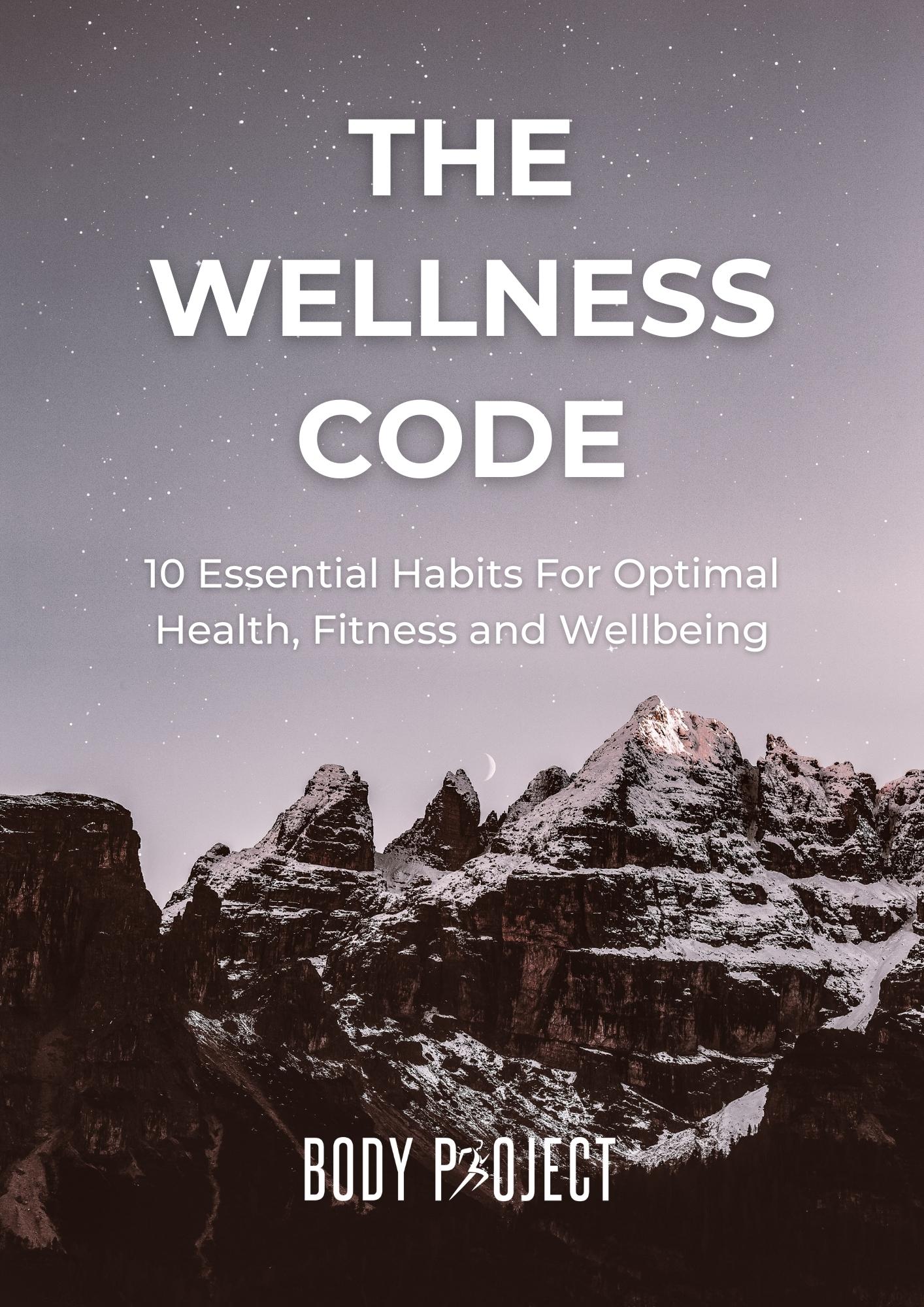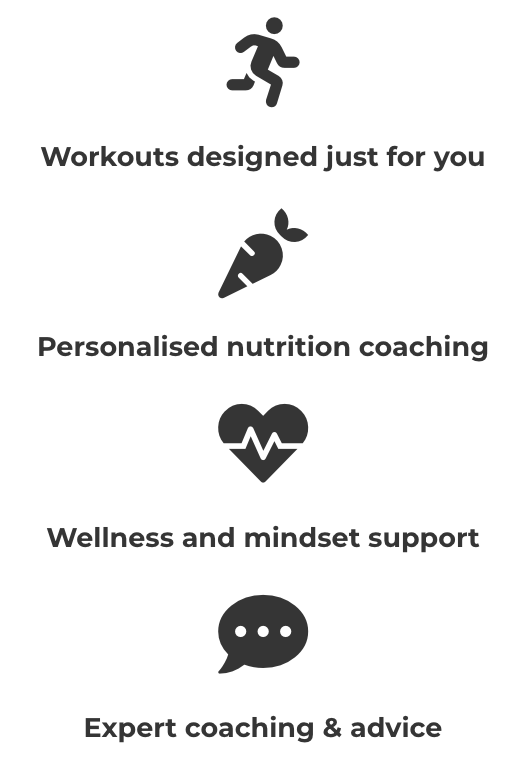What's The Best Diet For You?
In my early days as a coach I used to write meal plans for people. I’d spend hours calculating their nutrition needs, writing detailed plans and shopping lists, making sure everything measured up perfectly to help them arrive at their goal in a specific time period.
Despite all that attention to detail, I struggled to get really great fat loss results from most of my clients as they simply didn’t stick to the plans for long. In hindsight, this was for a couple of reasons:
- I only had limited time with my clients and not much scope to support them outside of our personal training sessions together. This is part of the reason I created my Online Coaching programme where I’m available to chat with my clients all week, whenever they need me. You can find out more about Online Coaching here.
- Diets and meal plans very rarely work for most people. It’s this weird mix of being too structured and too generalised: they’re rigid and require strict adherence, but at the same time they don’t take the individual into account much, if at all. This makes them very difficult to stick to long-term.
I could create the best diet plan in the world for you, but if you can’t stick to it then it’s not worth the paper it’s written on.
How Diets Work
All diets make people lose weight using exactly the same scientific principle: calorie deficit. Every single viable weight loss diet in the world restricts calories in some way. Each diet takes a different approach based on its own belief system or interpretation of weight loss science. Here are some examples for you:


7 Reasons Why Diets Don't Work
I totally get that cleaning up your diet and getting in shape can feel overwhelming. Whilst it makes sense to follow a prescribed diet for direction and to keep things simple, the drawbacks massively outweigh these initial benefits. Unfortunately, diets are generally ineffective in helping people make better food choices and live healthier lifestyles long term. Here’s why:
1. Diets take away the need for you to make conscious decisions. They simply give instructions for you to follow. This removes an element of accountability that’s essential for your long-term success.
2. Diets don’t empower you to learn much about food or your body. Taking the responsibility to understand nutrition and its psychology gives you skills you can use and build upon for the rest of your life.
3. Diets don’t take into account your individual needs, preferences, or existing habits. They are highly generalised, which is why most diets work well for a few people, and not at all for others.
4. Diets represent a sharp change in eating habits. That's really hard to sustain compared to a gradual adjustment to new behaviours that last a lifetime.
5. Diets generally restrict you in some way, which can easily lead to feelings of deprivation and frustration resulting in behaviours like binge-eating. It’s important that however you eat, you never feel deprived of food.
6. Diets can encourage an “all or nothing” mindset: either you’re on a diet or you’re not, and that makes it easy to give up when you make a mistake. When it comes to eating better for life, psychologically speaking, it’s all about progress, not perfection.
7. Diets don’t come with an exit strategy. Very few people start a diet that they plan to follow for life, but when they finish the diet, what do they go back to? The same way of eating that made them unhappy in the first place! This is why so many people gain all their weight back after putting so much effort into losing it.
How To Create A Diet That Works For You
Want to know the best way I’ve found to not only to successfully lose weight, but do so in a way you enjoy AND keep the weight off for life?
You need to create the YOU diet. It’s not a diet, it’s just your diet - what you eat day to day. This way your eating habits feel organic and easy to stick to as you’re the one in the drivers seat making all the decisions. Sure, it requires some initial effort on your part, but it sure as hell beats living in a cycle where you’re constantly battling against the scales. You’ve gotta play the long game, friend, and if something’s worth doing it’s worth doing properly.
Here's the exact process I go through with my clients to carve out the easiest and most effective path possible to weight loss...

1. Get clarity on exactly what your goals are. This sounds simple, but it’s super important to dig deep here. How much weight do you want to lose? Why? By when? Where did you get that number from? Is that realistic? Does the number even matter? Which other ways could you measure progress? A great coach will not only help you to establish your goals but also uncover why they’re important to you, which is useful info to keep you motivated when things get tough.
2. Get a clear picture of your current situation. This means collecting both biometric data like progress pictures or how much you weigh, and nutritional data on what you’re currently eating.
I’d recommend recording your nutrition intake for at least a week or two using an app like MyFitnessPal. Scribbling down what you’ve eaten on the back of a receipt just won’t cut it - you need hard data on how many calories, carbs, fats, and proteins you’re consuming. Click here to learn how to track your food intake.
3. Make a conscious decision on what your next step will be with your current and goal situations in mind. When it comes to weight loss, calorie control is going to be your highest priority. How you reduce your calories is up to you. You could take inspiration from any of the many (many!) diets out there, or just go with your gut (pun absolutely intended) on what feels right for you. Work out the easiest change you can make that will have the greatest impact for you. This might require some experimentation, and you’ll have to give things a really good go for at least a couple of weeks before making any further change. Patience is a virtue and all that.
4. Review your situation periodically. Give each change you make a chance to work. If it does, stick with it. If it doesn’t, change it. If it works a bit, make an additional change. Remember that when it comes to weight loss there’s more than one way to skin a cat. The diets listed above present just a few suggestions on how you can reduce your calories, and there are countless other options out there.
5. Get your priorities straight. There's no use investing in expensive "health" products that make bold claims and big promises - you gotta get your foundations steady first. Calories will be your highest priority initially, and eventually you'll need to start looking at how you’re balancing out your macronutrients (that’s carbs, fats, and proteins) and whether the food sources you’re choosing are the healthiest options for you. There’s lots of good quality information available out there - remember to be a discerning reader of course - in books, online (this blog in particular!), and you always have the option of hiring a coach if you want to sidestep trial and error learning and get straight to exactly what you need to know.
Search Posts
Free Download
Popular Posts
Discover Online PT
Read More Helpful Articles
Subscribe For New Post Updates
Receive new posts, special offers, discounts, plus exclusive content that we only send out via email.
Don't miss out!







